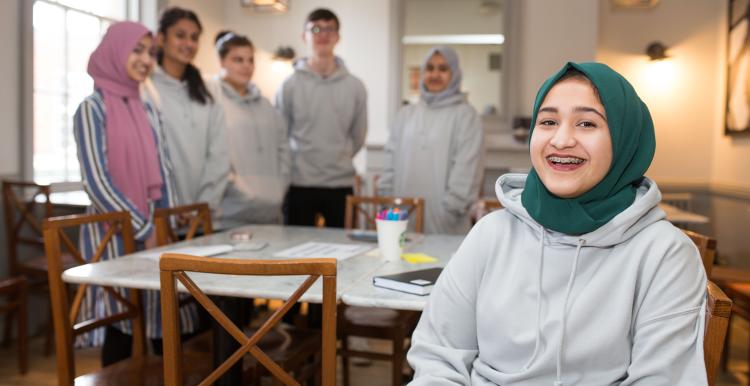Quarter of 17-19-year-olds have probable mental disorder - study

Based on an online survey, rates among teenage boys and girls were similar - but twice as high in 17- to 24-year-old women compared with men. Children affected were more likely to live in a household with money issues or using a food bank. Charities said the figures were deeply worrying.
The charity Mind said the UK government "will be failing an entire generation unless it prioritises investment in young people's mental-health services".
The findings are based on the views and experiences of 2,866 young people aged above six who have been followed up since 2017.
Their responses to an online survey, and those of younger children's parents, in April 2022, were used to assess different aspects of mental health, including emotional problems, behaviour and relationships.
The children and young people were then classified by how likely they were to have a mental disorder - unlikely, possible or probable - without being seen or diagnosed by a mental-health specialist.
Separate NHS figures show that the number of under-18s in contact with NHS mental health services in England rose by nearly 30% in the last year - from 768,083 in 2020-21 to 992,647 in 2021-22.
An initial survey of children's mental health, in 2017, was followed-up in 2020, 2021 and 2022 to track changes.
The survey results suggest a probable mental disorder among:
- 18% of seven- to 16-year-olds - five in every classroom
- nearly 33% of female 17- to 24-year-olds, compared with 13% of male
- nearly 20% of male seven- to 16-year-olds, compared with 10% of female
Young people with a probable mental health disorder were more likely to:
- say they had self-harmed, with 28% saying they had talked about it in the past four weeks
- live in a household where paying bills and putting food on the table was a challenge
The NHS Digital survey also indicates:
- one in eight 11- to 16-year-old social-media users have been bullied online - and more than a quarter of those have a probable mental disorder
- nearly two-thirds of 17- to 24-year-olds - and more girls than boys - have a possible eating problem
- teenagers with a probable mental health disorder are more likely feel lonely, with 18% affected
- a third of seven- to 16-year-olds and two-thirds of 17- to 23-year-olds had had problems sleeping in the past week


